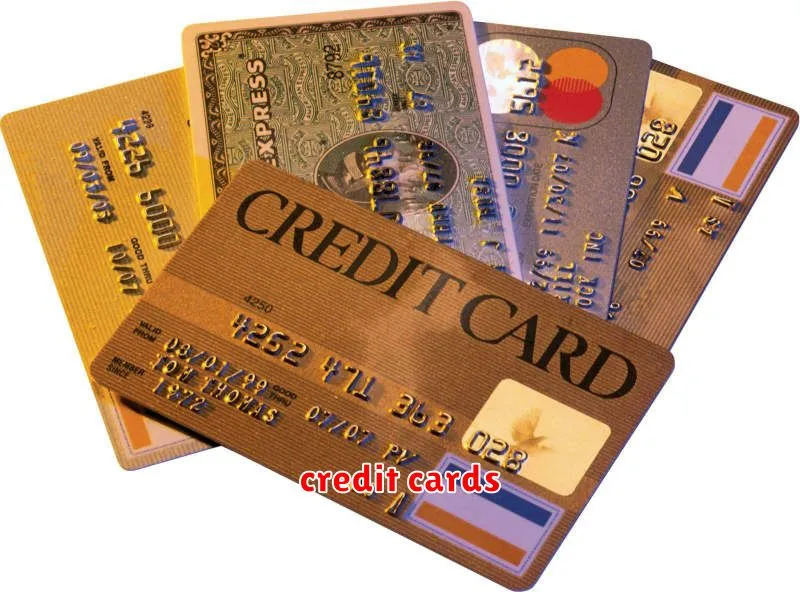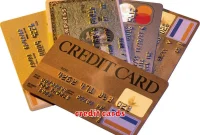Navigating the world of personal finance can be overwhelming, especially when it comes to choosing the right payment method. Two popular options often top the list: credit cards and debit cards. While both offer convenience and ease of use, understanding the nuances of each can significantly impact your financial well-being. This article delves into the key differences between credit cards and debit cards, exploring their advantages and disadvantages, to help you make an informed decision about which one is best for your financial health.
From building credit to managing expenses, the choice between a credit card and a debit card can have far-reaching consequences. Choosing the wrong one could lead to debt accumulation, while making the right choice can empower you to achieve your financial goals. Join us as we examine the pros and cons of both options, equipping you with the knowledge to navigate the world of payments with confidence and control.
Understanding the Differences Between Credit and Debit Cards
Credit cards and debit cards are both plastic cards you can use to make purchases, but they operate very differently. Understanding these differences is crucial for managing your finances responsibly.
A credit card allows you to borrow money from the issuer to make purchases. You are then expected to pay back the borrowed amount, usually with interest, over time. Think of it as a short-term loan.
A debit card, on the other hand, directly deducts money from your linked bank account when you make a purchase. In essence, you’re spending the money you already have.
Here’s a quick table summarizing the key distinctions:
| Feature | Credit Card | Debit Card |
|---|---|---|
| Source of Funds | Borrowed money from the issuer | Money from your linked bank account |
| Payment Due Date | Usually a monthly statement | Immediate |
| Interest Charges | Yes, if you don’t pay the balance in full | No |
| Credit Limit | Yes, set by the issuer | No, determined by your account balance |
| Rewards & Benefits | Often offers rewards, cashback, and travel benefits | Limited rewards, if any |
Choosing between a credit card and a debit card depends on your individual financial habits and goals. Credit cards can offer flexibility and rewards, but carrying a balance can lead to high interest charges. Debit cards are safer for budgeting and avoiding debt, but they don’t offer the same benefits as credit cards.
The Benefits of Using Credit Cards
Credit cards offer several advantages that can benefit your financial health, if used responsibly. Here are some of the key benefits:
Building Credit History: Using a credit card responsibly helps establish a positive credit history, which is crucial for obtaining loans, mortgages, and other financial products in the future.
Rewards and Cashback: Many credit cards offer reward programs, such as cash back, points, or miles, which can provide valuable perks and savings on purchases.
Purchase Protection: Some credit cards offer purchase protection against damage, theft, or fraud, providing an extra layer of security for your transactions.
Emergency Funds: Credit cards can act as a safety net in emergencies, providing access to funds when you need them most.
Travel Benefits: Certain credit cards offer travel benefits such as airport lounge access, travel insurance, and bonus miles or points for airfare and hotel bookings.
The Advantages of Debit Cards
Debit cards offer several advantages over credit cards, making them a valuable tool for managing your finances. One key benefit is that debit cards help you avoid debt. Since you’re only spending money you have in your bank account, you can’t overspend and rack up credit card debt, which can be costly with high interest rates.
Another significant advantage is that debit cards promote financial discipline. By using a debit card, you are forced to be mindful of your spending and live within your means. This can help you avoid impulsive purchases and build healthy spending habits.
Debit cards also offer enhanced security compared to cash. If your card is lost or stolen, you can quickly report it to your bank, minimizing the potential for fraudulent transactions. This provides a greater sense of security compared to carrying around a large amount of cash.
Furthermore, debit cards provide convenience. They are widely accepted at various merchants, both online and offline, making it easier to pay for goods and services without having to carry large amounts of cash. You can also easily track your spending history through online banking or mobile apps.
In conclusion, debit cards offer a range of advantages, including debt prevention, financial discipline, enhanced security, and convenience. By embracing debit cards as your primary spending method, you can take control of your finances, avoid debt, and build a healthier financial future.
How to Choose Between Credit and Debit
Deciding between a credit card and a debit card can be tricky. Both have their pros and cons, and the best choice for you depends on your individual financial situation and spending habits. To help you make an informed decision, here’s a guide on how to choose between credit and debit cards:
Consider your spending habits:
- Impulsive spender? A debit card is generally the safer option, as you can only spend what’s in your account. This helps prevent overspending and accumulating debt.
- Disciplined spender? A credit card can be a valuable tool for building credit, earning rewards, and making large purchases. However, it’s essential to be disciplined with your spending and pay your balance in full each month to avoid interest charges.
Evaluate your financial goals:
- Building credit? A credit card is a great way to establish credit history, which is crucial for future loans, mortgages, and even renting an apartment.
- Managing debt? A debit card is more suitable if you’re trying to avoid accumulating debt and focus on paying off existing balances.
Consider your risk tolerance:
- Risk-averse? A debit card offers more protection against overspending and potential debt. You only spend what you have in your account, providing a sense of security.
- Comfortable with risk? A credit card can offer rewards and perks, but it comes with the risk of accumulating debt if you don’t manage it carefully.
Ultimately, the best choice for you depends on your individual circumstances and preferences. Consider your spending habits, financial goals, and risk tolerance to determine which card is the right fit for your financial well-being.
The Impact of Credit Cards on Your Credit Score
Credit cards can have a significant impact on your credit score, both positively and negatively. Here’s how:
Positive Impact:
- Building Credit History: Responsible credit card use helps establish a positive credit history, which is essential for obtaining loans, mortgages, and other financial products.
- Increasing Credit Limit: As you use your credit card responsibly and make payments on time, you can increase your credit limit. This can improve your credit utilization ratio, which is the percentage of your available credit you’re using. A lower credit utilization ratio generally indicates good financial management.
- Demonstrating Financial Responsibility: Consistent on-time payments demonstrate your ability to manage debt, which lenders consider a positive factor.
Negative Impact:
- High Interest Rates: Credit cards often come with high interest rates, which can accumulate quickly if balances are not paid off in full each month. This can negatively affect your credit score if you miss payments.
- Overspending: Credit cards can make it easy to overspend, leading to high debt levels. This can lower your credit score and have a detrimental impact on your financial health.
- Late Payments: Late or missed payments on your credit card are reported to credit bureaus and can significantly lower your credit score.
Key Takeaway: While credit cards can be useful financial tools, it’s crucial to use them responsibly to avoid negative consequences for your credit score. Always make payments on time, keep your credit utilization ratio low, and only spend what you can afford to repay.
Tips for Managing Credit Card Debt
Credit cards can be a helpful tool for building credit and making large purchases, but they can also lead to debt if not used responsibly. Here are some tips for managing your credit card debt:
1. Create a Budget: Track your income and expenses to see where your money is going. This will help you identify areas where you can cut back to free up more cash for debt repayment.
2. Make More Than the Minimum Payment: Aim to make more than the minimum payment each month. This will help you pay down your balance faster and reduce the amount of interest you pay over time.
3. Consider a Balance Transfer: If you have multiple credit cards with high interest rates, consider transferring your balances to a card with a lower interest rate. This can save you money on interest charges.
4. Avoid New Debt: Once you’ve started paying down your debt, it’s important to avoid taking on new credit. This will prevent you from digging yourself further into debt.
5. Seek Professional Help: If you’re struggling to manage your credit card debt, don’t be afraid to seek professional help. A credit counselor can help you develop a plan to get out of debt.
Common Mistakes to Avoid with Debit Cards
Debit cards offer convenience and are a popular way to make purchases. However, they come with their own set of potential pitfalls. Understanding common mistakes associated with debit cards can help you avoid financial trouble and maximize the benefits of using them.
One major mistake is overspending. Since you’re using your own money, it can be easy to lose track of your spending. Always check your balance before making purchases and set a spending limit for yourself.
Another common error is not monitoring your account regularly. This can lead to unauthorized transactions and overdraft fees. Regularly checking your statements and online account activity is essential.
Using your debit card at unsecure websites or ATMs is a significant risk. Ensure the site or ATM is legitimate and that you’re using a secure connection. Always be cautious of phishing scams, which attempt to steal your personal and financial information.
Finally, avoid using your debit card for online subscriptions or recurring payments. These can lead to overspending or unexpected charges if you forget about them. Consider using a credit card with rewards or cashback for these types of transactions.
By avoiding these common mistakes, you can use debit cards responsibly and enjoy their benefits without compromising your financial health.
How to Maximize Rewards with Credit Cards
Credit cards can be a powerful tool for building credit, earning rewards, and managing your finances. To maximize your rewards, it is important to understand how credit card rewards programs work and how to choose the right card for your spending habits.
Sign-up Bonuses: Many credit cards offer enticing sign-up bonuses, often in the form of cash back, travel miles, or points. These bonuses can be a great way to kickstart your rewards earning. To take advantage of them, make sure to meet the minimum spending requirements within the specified timeframe.
Purchase Categories: Some credit cards offer bonus rewards on specific categories of purchases, such as dining, travel, or groceries. To maximize your rewards, try to use your card for purchases that fall within these categories. Consider using different cards for different categories to take advantage of all the rewards.
Points & Miles: Credit card rewards programs often use points or miles that can be redeemed for various benefits. Familiarize yourself with the redemption options and make sure you are getting the most value out of your points. You can often transfer your points to airline or hotel loyalty programs for greater flexibility.
Travel & Shopping Portals: Many credit card issuers partner with travel and shopping portals that allow you to earn additional points or miles on your purchases. Before you book your next trip or make a major purchase, check to see if you can earn bonus rewards through these portals.
Paying on Time: The most crucial factor in maximizing your credit card rewards is paying your balance in full and on time each month. This helps you avoid interest charges and keep your credit score strong, which can help you qualify for even better rewards programs in the future.
The Role of Credit Cards in Building Credit
While debit cards draw directly from your checking account, credit cards offer a line of credit, allowing you to borrow money and repay it later. This borrowing ability plays a crucial role in building your credit score, a numerical representation of your creditworthiness.
Lenders use your credit score to assess your risk when applying for loans, mortgages, or even credit card upgrades. A higher credit score indicates responsible financial behavior, making you a more attractive borrower.
Here’s how credit cards contribute to building credit:
- On-time Payments: Consistent and timely payments demonstrate your financial reliability and positively impact your credit score.
- Credit Utilization Ratio: Keeping your credit card balance low compared to your credit limit (credit utilization ratio) reflects responsible borrowing habits.
- Credit History Length: The longer your credit history, the more data lenders have to assess your creditworthiness, leading to a potentially higher score.
Building a good credit score through responsible credit card use opens doors to better financial opportunities, including lower interest rates on loans, access to more favorable financial products, and even improved chances of getting approved for a mortgage.
The Future of Credit and Debit Cards
The future of credit and debit cards is likely to be marked by continued technological advancements and a shift towards greater convenience and security. As digital payments become increasingly prevalent, mobile wallets and contactless payment technology will likely play a more prominent role.
The use of biometric authentication, such as fingerprint or facial recognition, is expected to enhance security and reduce the reliance on traditional PINs and signatures. Data analytics will also be utilized to provide personalized financial insights and recommendations, tailored to individual spending habits and preferences.
While credit and debit cards will remain essential tools for financial transactions, they may evolve to become more integrated with other financial services, such as online banking and investment platforms. The line between physical and digital payments may blur further, leading to a more seamless and interconnected financial ecosystem.




